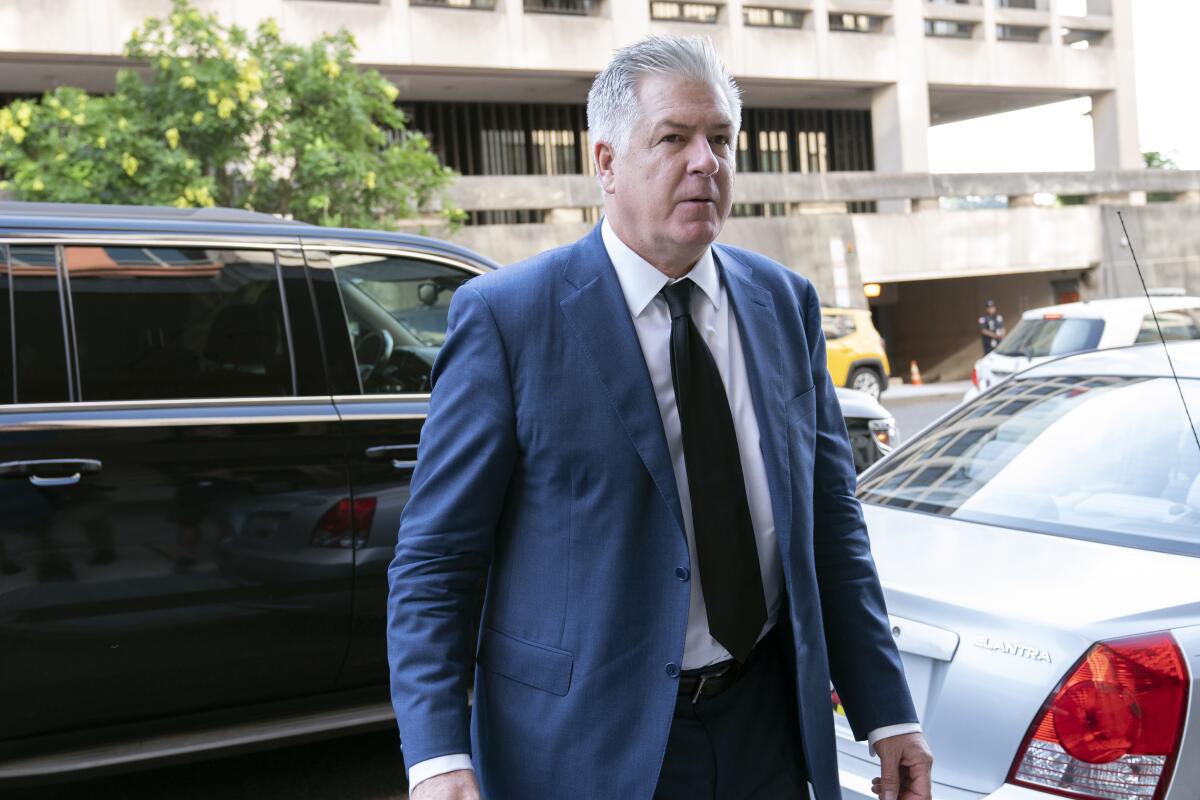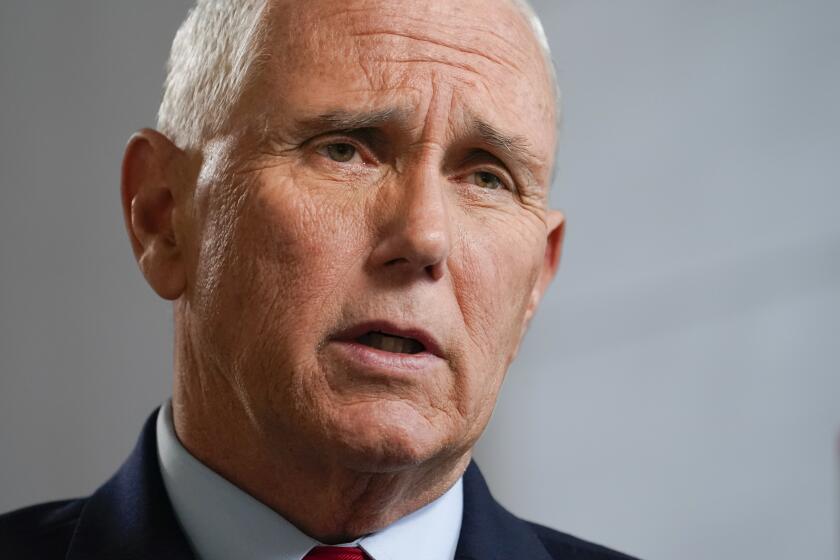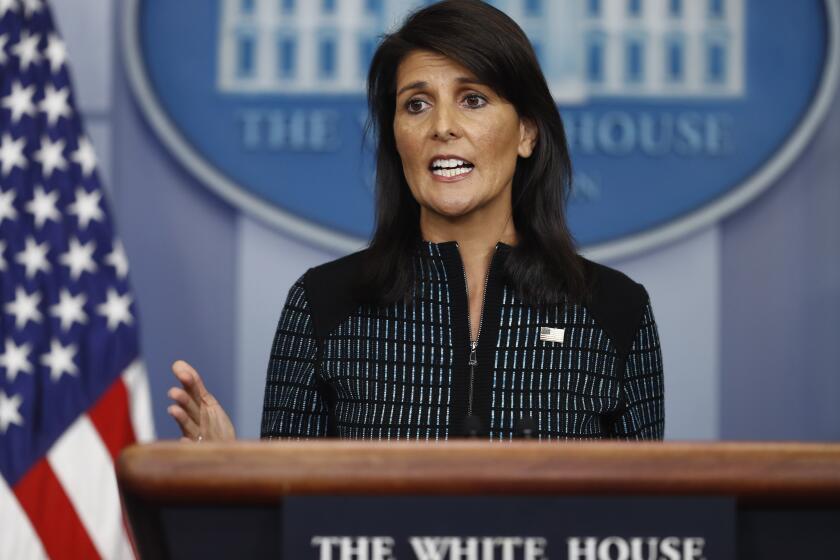In Trump probe, U.S. seeks to pierce attorney-client privilege

WASHINGTON — Justice Department prosecutors investigating the mishandling of classified documents at former President Trump’s Florida estate are seeking to pierce the attorney-client privilege and want to again question one of his lawyers before a grand jury, a person familiar with the matter said Tuesday night.
The privilege protects lawyers from having to tell prosecutors about confidential conversations with clients. But prosecutors can get around that privilege if they can convince a judge that the communications were made in furtherance of a crime — a doctrine known as the crime-fraud exception.
Prosecutors have questioned M. Evan Corcoran before a grand jury, but he repeatedly invoked attorney-client privilege in declining to answer questions, according to the person who spoke with the Associated Press and insisted on anonymity to discuss an ongoing investigation.
Mike Pence plans to cite constitutional grounds to resist special counsel Jack Smith’s efforts to compel his testimony before a grand jury.
The request from prosecutors working with special counsel Jack Smith is expected to lead to closed-door arguments before the chief judge of the District of Columbia Federal Court about whether prosecutors can compel Corcoran to answer their questions about his conversations with Trump.
It is not the first time during the course of the investigation that prosecutors have raised the specter of criminal conduct. In August, the Justice Department revealed in a search warrant affidavit that it had probable cause to investigate the unlawful retention of national defense information, as well as efforts to obstruct that probe.
It remains unclear whether Trump or anyone else will be charged, though the move is a notably aggressive act by Smith’s team. A war crimes prosecutor who previously led the Justice Department’s public corruption section, Smith is separately investigating efforts by Trump and his allies to overturn the results of the 2020 election and recently subpoenaed former Vice President Mike Pence as part of that probe.
Nikki Haley, the former South Carolina governor and United Nations ambassador under Donald Trump, announced her candidacy for president.
A Justice Department spokesman did not return a call seeking comment Tuesday night, and Corcoran did not return an email seeking comment.
Trump’s lawyers and representatives have featured prominently for months in the investigation into the retention of roughly 300 documents with classified markings at Mar-a-Lago. The Justice Department issued a subpoena last May to recover classified documents at the Trump estate, but officials who visited the property were given a folder containing only about three dozen records.
One of Trump’s lawyers, Christina Bobb, signed a letter stating that a “diligent search” had been conducted for classified documents and that all such records had been returned to the government. She told FBI investigators in an interview last fall that she had not drafted the letter and that Corcoran was the one who prepared it and asked her to sign it in her role as custodian of records.
Arizona voters rejected crazy in November’s election, but Republican Wendy Rogers, a conspiracy monger, now chairs the state Senate Elections Committee.
Prosecutors say they subsequently developed evidence that led them to suspect that additional classified records remained at the property. They returned in August with a search warrant, removing roughly 100 documents with classified markings.
The New York Times first reported that the Justice Department was seeking to pierce attorney-client privilege.
More to Read
Get the L.A. Times Politics newsletter
Deeply reported insights into legislation, politics and policy from Sacramento, Washington and beyond. In your inbox three times per week.
You may occasionally receive promotional content from the Los Angeles Times.













